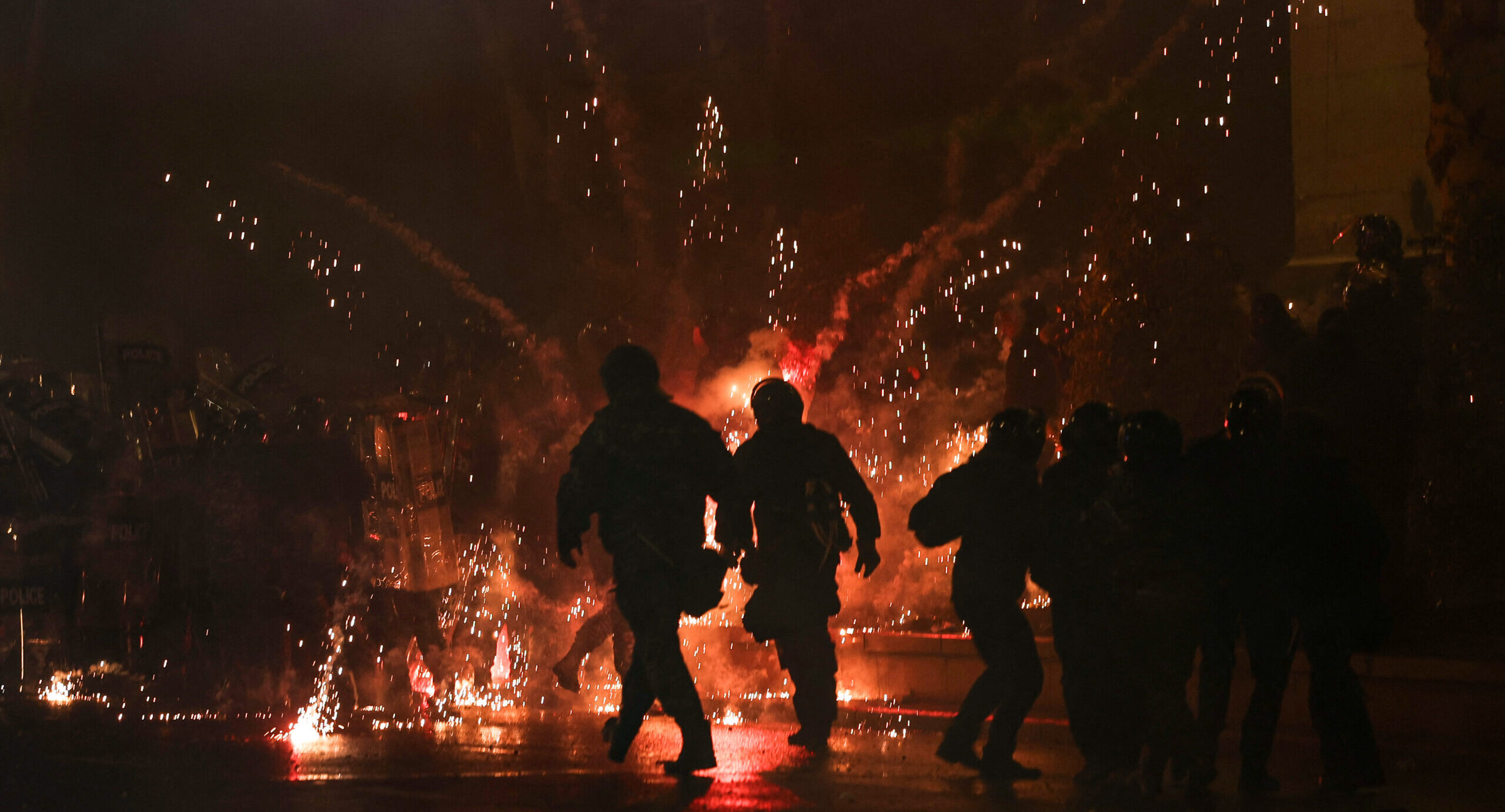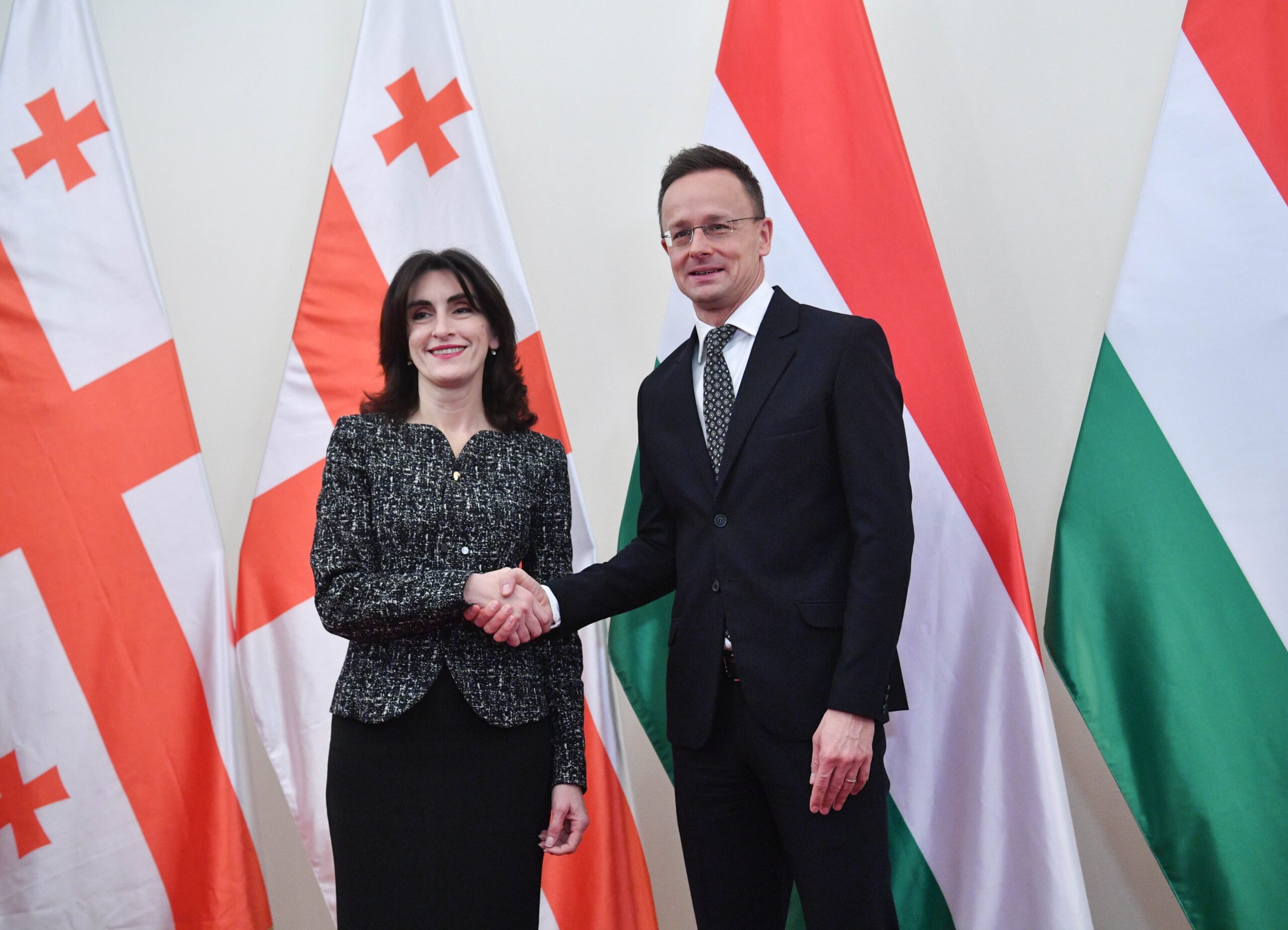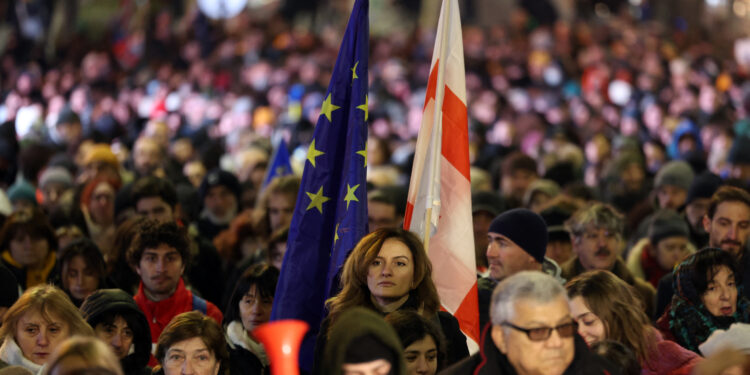Brussels – In Brussels, the loyal ally of the pro-Russian ruling party in Georgia, Georgian Dream, is Viktor Orbán‘s Hungary. While on the streets of Tbilisi – now in its fourteenth consecutive day of protests against the government’s decision to suspend the EU accession process – law enforcement violence continues, the European Union warns that it will “consider further measures” against those responsible for the democratic backsliding and repression. However, Budapest promises: “We will veto” any sanctions on Georgian officials.
Tensions in the Caucasian republic have been sky-high since October 26, when the ruling party in office since 2012 won elections that local and international observers denounced as irregular and the head of state, the pro-European Salomé Zourabichvili as illegitimate. The situation deteriorated definitively two weeks ago, on November 28, following the decision by Prime Minister Irakli Kobakhidze not to include the issue of negotiations to join the EU on the government’s agenda “before the end of 2028.”
According to the bulletin released yesterday (December 10) by Transparency International Georgia, in thirteen days of protests, 450 people were arrested, and over 300 protesters suffered violence and mistreatment, with over 80 requiring hospital treatment. For both administrative and criminal charges, judges “make decisions solely based on police officers’ testimonies.” Several reports from international organizations – accompanied by audiovisual material – indicate that “masked groups affiliated with the Georgian Dream party have been used to attack protesters and journalists.” Since November 28, 92 incidents of violence against journalists have been documented. Last week, Georgia Ombudsman Levan Ioseliani accused police of “using violence against citizens as a punitive measure,” which “constitutes an act of torture.”

Allegations promptly accepted by Brussels, which “encourages local and international organizations and the Ombudsman to continue documenting widespread human rights violations.” In a statement released by the spokeswoman for the European External Action Service (EEAS), the EEAS accused Georgian police of repressing demonstrations with “brutal and illegal force” through “arbitrary detentions of protesters and opposition leaders” and by “specifically” targeting media workers. The EEAS called for the “immediate release of all those detained” and for “an end to the widespread intimidation, political persecution, torture and ill-treatment of citizens.”

Georgian foreign minister Maka Botchorishvili, and her Hungarian counterpart Péter Szijjártó
The European External Action Service urged Georgian Dream “to tone it down” and recalled that it was the ruling party’s “course of action” that “led to the de facto halting of the EU accession process.” The “persistent democratic backslide and the recent repressive means used by Georgian authorities have consequences for our bilateral relations.” The High Representative for Foreign Affairs, Kaja Kallas, will put the “further measures” on the table of the EU foreign minister meeting on Monday, December 16Two days after the next scheduled hot meeting in Tbilisi, when the far-right candidate Mikheil Kavelashvili will succeed Salomé Zourabichvili to lead the republic.
Including any Georgian officials in the EU human rights sanctions regime would require unanimous approval from the 27 member states. However, Kallas is unlikely to be able to count on Budapest to call out the Tbilisi government. On the sidelines of a bilateral meeting with Georgian Foreign Minister Maka Botchorishvili, her Hungarian counterpart Péter Szijjártó warned: “We oppose adding Georgian officials to any sanctions list. If such a proposal comes up, Hungary will block it, that’s for sure.” Orbán’s minister then attacked the European Union, calling criticism of Georgia “hypocritical, tired, and repugnant.”
English version by the Translation Service of Withub







